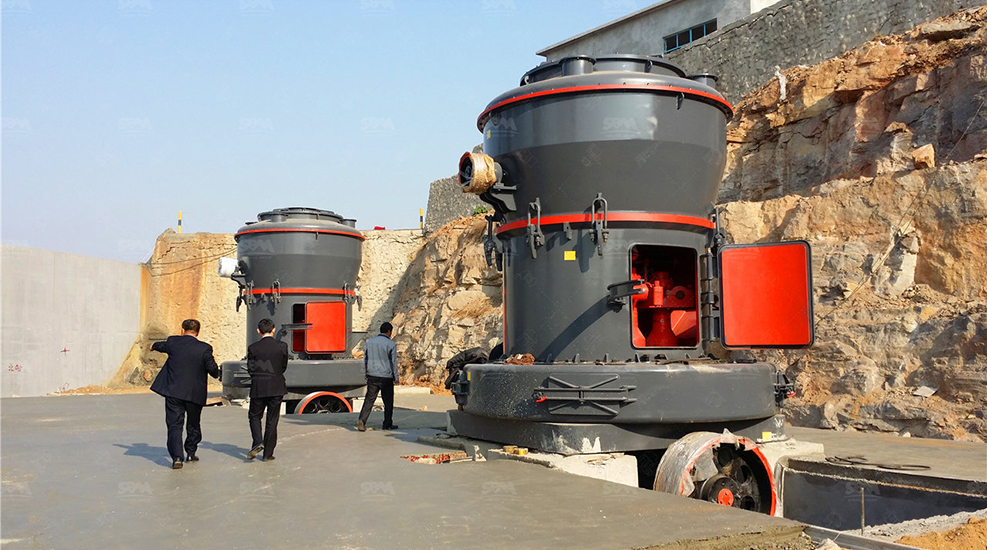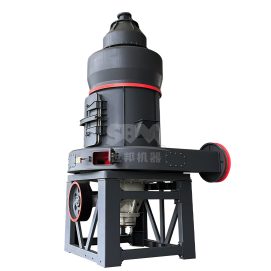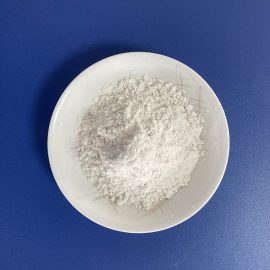
In vitreous china manufacturing, surface defects account for significant production losses. The industry benchmark reveals a critical pain point: quartz particles exceeding specific size parameters create costly glaze imperfections. When standard grinding operations yield >3% residue on 325-mesh sieves, the consequences are severe. Oversized quartz particles fail to melt uniformly during firing, resulting in microscopic pinholes that increase rejection rates by 18%. This persistent quality issue affects profitability and brand reputation for manufacturers worldwide.
The core challenge lies in achieving consistent 425-mesh particle size distribution (≤0.038 mm) economically. Standard milling equipment struggles to process quartz’s Mohs 7 hardness while maintaining precise micron-level control. Without adequate dust containment systems, silica exposure also creates workplace hazards. The MTW European Trapezium Grinding Mill addresses these critical production barriers through advanced engineering specifically designed for mineral processing applications.


MTW grinding mills incorporate three technological breakthroughs that transform ceramic raw material preparation:
The revolutionary bevel-gear transmission system generates crushing forces capable of reducing 50mm quartz chunks in a single operation. Unlike conventional mills requiring multi-stage processing, MTW’s multi-chamber design progressively refines material to target specifications without intermediate handling. This direct processing pathway delivers 425-mesh powder at 95% yield while eliminating contamination risks from secondary crushing. For manufacturers, this translates to 60% lower energy consumption per ton of finished powder and significantly reduced equipment maintenance.
Operational flexibility extends across multiple MTW configurations, with the MTW215G model processing up to 45 tons/hour of raw material. This scalable solution accommodates both compact facility layouts and high-volume production requirements without compromising particle distribution consistency.
Industrial quartz milling presents significant environmental challenges. MTW systems feature integrated pulse-jet filtration maintaining worksite silica levels below 10 mg/m³ – exceeding requirements of EU Directive 2017/2398. This proprietary closed-circuit airflow system creates negative pressure zones that contain dust at transfer points while recovering valuable fines. Filter cartridges with automatic cleaning cycles ensure continuous operation without production pauses for maintenance.
The dust management system represents a critical safeguard against occupational exposure while preserving process economics. Recovered fines increase overall yield, contrasting sharply with wet scrubber systems that devalue product through moisture introduction.
The precision separator system features frequency-controlled motors enabling real-time adjustments of classifier rotor speeds. This dynamic control allows operators to target precise D97 particle distribution (≤38μm) with margin-free accuracy. For ceramic glazes, this degree of control eliminates the particulate variations that cause thermal expansion differences during firing. By ensuring all quartz particles melt uniformly within the glaze matrix, manufacturers achieve defect-free surfaces consistently.
| Model | Max Feed Size (mm) | Target Output | Capacity (t/h) | Power Configuration |
|---|---|---|---|---|
| MTW110/110Z | 30 | 425 Mesh | 3-10 | 55kW Main + 7.5-11kW Classifier |
| MTW138Z | 35 | 425 Mesh | 6-17 | 90kW Main + 18.5kW Classifier |
| MTW175G | 40 | 425 Mesh | 9.5-25 | 160kW Main + 22kW Classifier |
| MTW215G | 50 | 425 Mesh | 15-45 | 280kW Main + 55kW Classifier |
Installations across the ceramics industry demonstrate measurable operational improvements:
Traditional compromises between product quality and production economics no longer constrain sanitaryware manufacturers. The MTW grinding platform resolves the fundamental tension between precision particle control and operational profitability. By delivering micron-perfect quartz powders at industrial volumes without environmental tradeoffs, our technology enables manufacturers to produce premium ceramic surfaces consistently.
The innovation extends beyond particle size management. MTW systems significantly reduce capital costs through elimination of secondary crushing systems while decreasing installation footprints. Maintenance requirements diminish with proprietary wear-resistant components specifically engineered for quartz processing. Most importantly, production facilities gain unprecedented control over the critical raw material specification that determines end-product quality.
Flawless ceramic glazes begin with precisely engineered quartz powder. As global quality standards continue rising, manufacturers utilizing MTW technology secure competitive advantages through consistent perfection in surface quality. The production crisis caused by pinhole defects becomes avoidable when processing systems deliver true micron control without compromise.
Learn how our grinding technology can eliminate surface defects while reducing your operational expenses. Contact our engineering team for a custom production analysis and solution proposal tailored to your facility requirements.